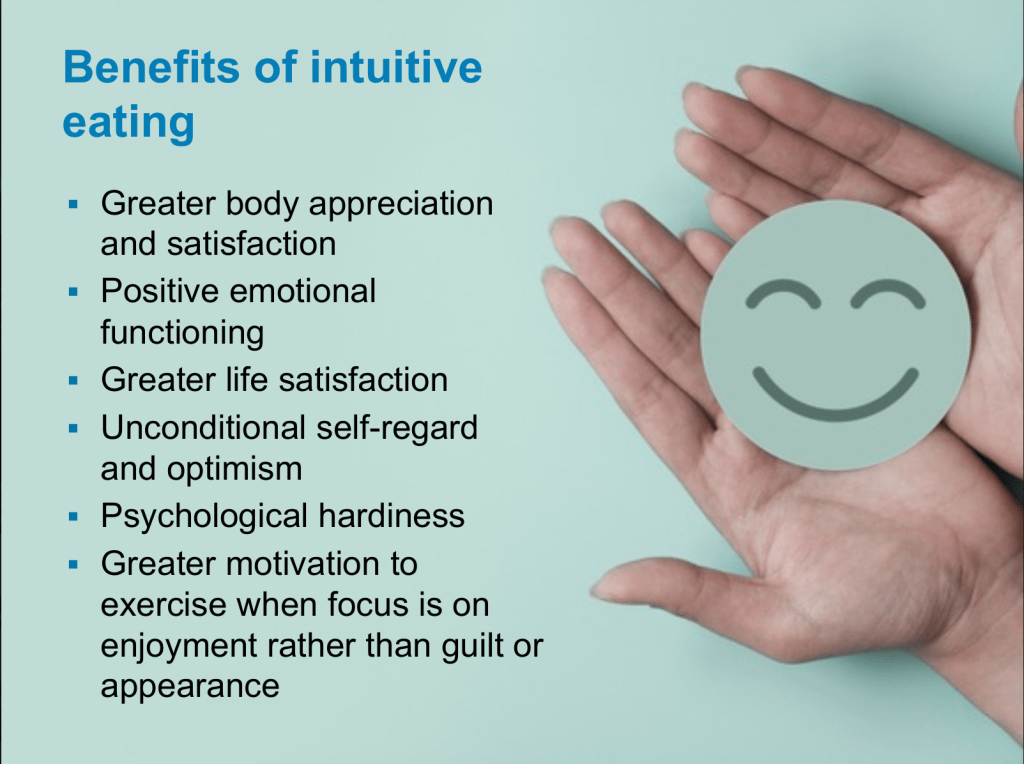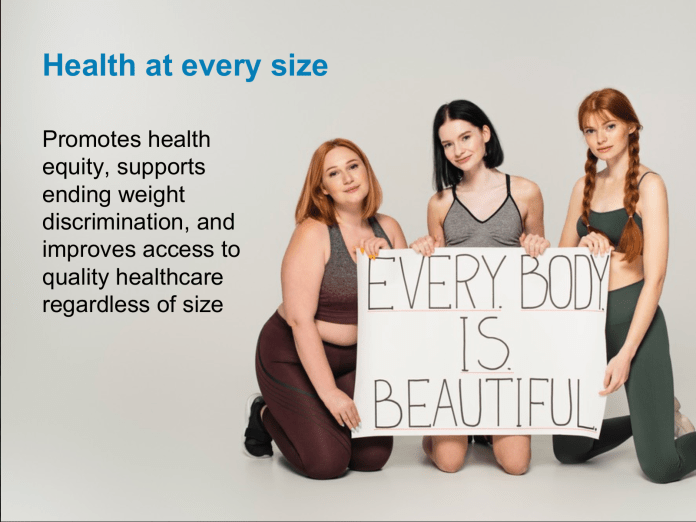California State University, Monterey Bay (CSUMB) students had the chance to speak with Leslie Pinkerton, a local clinical dietician about the practice of intuitive eating during an event held on March 1 to promote Eating Disorder Awareness Week. The talk was one of four separate events to raise awareness and create a discussion around the difficulties that come with trying to eat healthy.
Intuitive eating was popularized in the media following the publication of the book “Intuitive Eating: A Revolutionary Program that Works” by certified nutritionists Elyse Resch and Evelyn Tribole in 1995.
This practice focuses on “a self-care eating framework that treats all bodies with dignity and respect … and a personal process of honoring health by listening and responding to the direct messages of the body in order to meet your physical and psychological needs,” according to Pinkerton.
Pinkerton also touched on the fact that eating disorders are “more common than any of us would think, and a lot of disordered eating has been normalized in our culture. I think it’s so important to know about it, so this awareness week is really about learning how serious it can be, and knowing that there’s a lot of help out there.”
She also wants students to know that “eating disorders are serious and life-threatening, but they are treatable. Early treatment means lower likelihood of relapse and higher likelihood of lasting recovery.”
Intuitive eating consists of 10 main principles, as taught by Resch and Tribole – they are:.
- Reject the diet mentality
- Honor your hunger
- Make peace with food
- Challenge the food police
- Discover the satisfaction factor
- Feel your fullness
- Cope with your emotions with kindness
- Respect your body
- Movement- feel the difference
- Honor your health- gentle nutrition
Another big part of becoming an intuitive eater is gaining introspective awareness. This means having the ability to be aware of your body’s physical cues and sensations. Being attuned to your body will allow you to tap into your body’s needs such as emotional feelings and biological eating cues.
“Stress, trauma, eating disorders, intense exercise… and some medications” are all side effects of life that may affect someone’s ability to be introspectively aware, according to Pinkerton.
While it can be difficult to be objective with yourself, it’s best to “treat yourself with kindness when it comes to food. A lot of pressure can come from social media and it’s easy to compare yourself, but my biggest takeaway is to just be kind to yourself,” said Annaleah Torres, a health education assistant for CSUMB’s Health Promotion and Education program.
According to Pinkerton, there are four key characteristics of intuitive eaters. The first is eating for physical reasons rather than emotional reasons. The second characteristic is granting yourself unconditional permission to eat – don’t restrict or cut anything out from your diet.
The last two characteristics of people who have mastered this approach are having a reliance on both internal hunger and satiety cues and making food choices that are compatible with what the body needs/wants on any specific day.
“I think a lot of people can relate to comparing yourself, or cutting out certain food groups that you think may be bad, such as carbs,” said Pinkerton. She explained that because our bodies need carbs for energy, limiting carb intake is not only depriving the body of essential nutrients, but it also takes away the satisfaction of eating.
Pinkerton’s presentation also pointed out that intuitive eating has been proven to increase life satisfaction, body appreciation, and emotional functioning. Studies have also shown that people who adopt this practice end up having a greater motivation to exercise, since the focus is on enjoyment rather than guilt.
Pinkerton shared some resources for anyone who is struggling with an eating disorder, or who knows of someone who might need help. She said that “students and friends can support each other by reaching out to eat meals together, encouraging one another to ensure proper fueling with good nutrition and supporting each other through conversation.”
Visit intuitiveeating.org or Anad.org for free support groups and more information on how to apply intuitive eating habits into your daily life.



